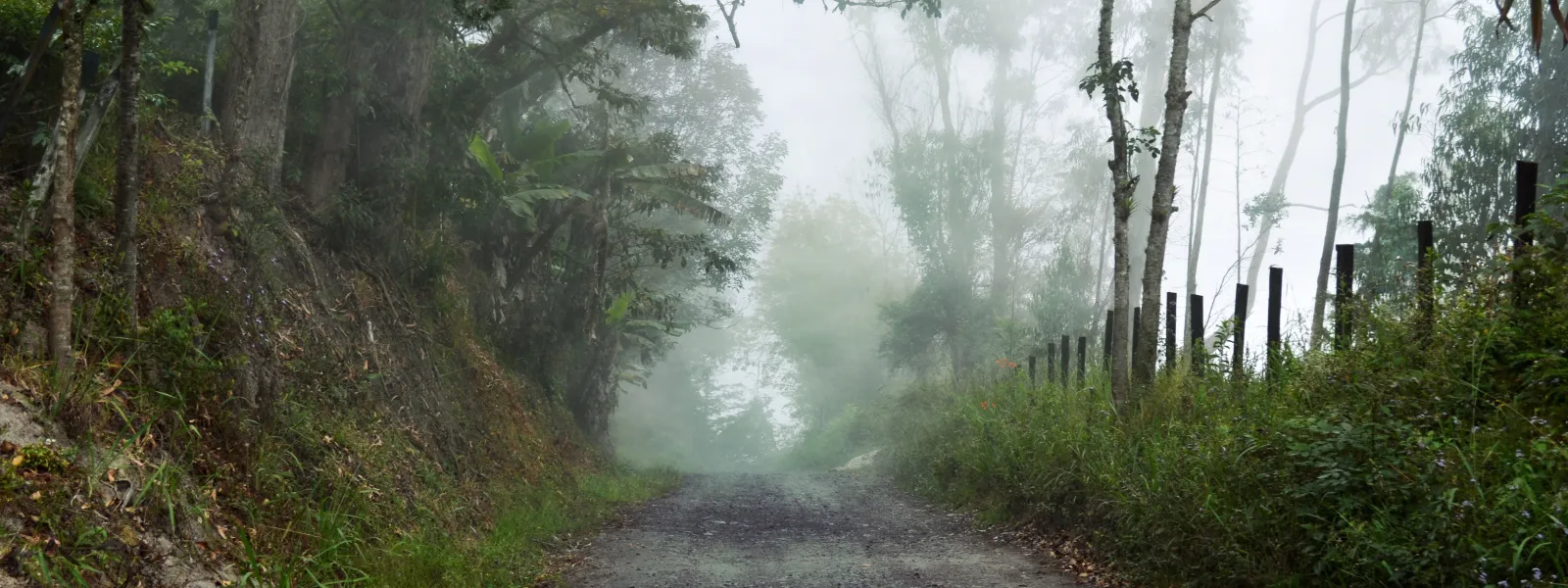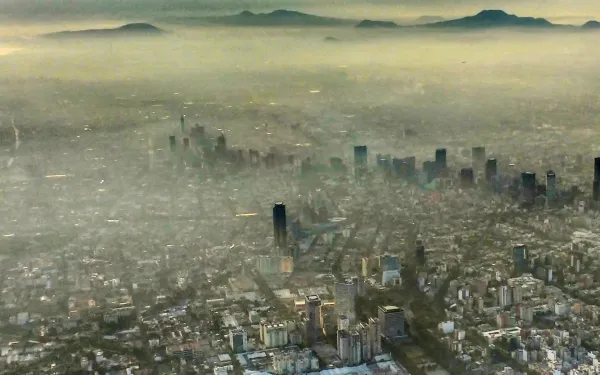
Project
Victory: Constitutional Court Defends Right to Prior Consultation
On January 23, 2008, the Colombian Constitutional Court declared the Forest Law of 2006 to be unconstitutional and therefore, invalid, because lawmakers did not consult with indigenous, afrodescendant, and tribal communities during development of the law as required.
This decision is an advance for these Colombian communities who view many economic development projects and policies as a threat to their traditional territory and cultural identity, as well as the environment. The ruling also establishes a valuable legal precedent that can be used to bolster indigenous and tribal communities’ rights in other legal cases throughout the Americas.
The Colombian government is required by law to consult with indigenous and tribal communities regarding administrative and legislative decisions that may affect them. It is obligated to do so because the Colombian Congress previously adopted into law “Convention 169,” a treaty of the International Labour Organization that protects this right and others.
In this case, the Court decided that indigenous and tribal communities should have been consulted because the Forest Law regulates forest issues in general terms, and contains provisions that “will likely affect areas generally used by the communities, which could impact their lifestyles and their close relationships with the forests.”
The court also declared that the requirement to consult with indigenous and traditional communities cannot be replaced with the general public participation process that the government carried out regarding the Forest bill. Rather, to comply with the law, the government should inform the communities about the proposed law, explain its implications and how it could affect them, and give them opportunities to effectively state their opinions regarding the bill.
As a result of this court ruling and civil society’s call to respect the right to prior and informed consultation, the Colombian government proposed a law to regulate and enforce this fundamental right. The Ministry of Agriculture also began developing a new forest law, this time using a process that complies with prior and informed consent procedures.
The lawsuit was brought by a group of students and professors from the University of Los Andes Law School in Bogota with the support of AIDA. Social organizations including the Proceso de Comunidades Negras, the National Indigenous Organization of Colombia (ONIC) and CENSAT Agua Viva also supported the group in presenting this case.
This group also filed a second lawsuit against the Forest Law alleging that the law violated Constitutional provisions protecting the environment. However, because of the January court decision, no decision will be made on this second suit.
Related projects

COP25: Organizations call on governments to improve air quality and, with it, slow the climate crisis
In a public letter, environmental and social organizations from Latin America and around the world urge governments to limit short-lived climate pollutants in their international climate commitments, which must be submitted to the United Nations by March 2020. Madrid, Spain. Governments must include ambitious and measurable targets for the reduction of short-lived climate pollutants in their new climate commitments, more than 100 organizations said in an open letter presented today, on the occasion of Human Rights Day, at the twenty-fifth Conference of the Parties (COP25) to the United Nations Framework Convention on Climate Change. "Mitigating short-lived climate pollutants implies reducing global warming in the short term and, at the same time, advancing in the decontamination of our cities," said Javier Dávalos, coordinator of the Climate Change Program at the Interamerican Association for Environmental Defense (AIDA). These pollutants are sometimes called "super climate pollutants" because they contribute to the climate crisis with much more intensity than carbon dioxide (CO2). As their name indicates, they stay a relatively short time in the atmosphere—from days to decades—unlike CO2, which can remain for millennia. Short-lived climate pollutants include black carbon, methane, tropospheric ozone and hydrofluorocarbons. They degrade air quality, affect glacial areas, and reduce crop yields. Poor air quality is the world's most deadly environmental problem. Each year, more than four million people die from the health damages caused by air pollution. The benefit of reducing these harmful emissions has been backed by science. The United Nations Intergovernmental Panel on Climate Change (IPCC), which brings together experts on the subject, stressed that to tackle global warming we must incorporate the mitigation of non-CO2 pollutants, specifically black carbon and methane. In addition, more than 11,000 scientists from around the world noted that the early reduction of short-lived climate pollutants would reduce warming by more than 50 percent over the next several decades. "The coming update of Nationally Determined Contributions opens up the possibility of governments betting on the elimination of these pollutants and thus contributing effectively to the fight against climate change and poor air quality," said Florencia Ortúzar, AIDA attorney. The deadline for governments to update their contributions is March 2020. That’s why the signatory organizations have called for the inclusion of ambitious and measurable goals for the reduction of these short-lived climate pollutants, and for governments to detail how the targets will be implemented, monitored and reported in the new commitments before the United Nations. "The solutions needed to reduce and eliminate each of the four short-lived climate pollutants are not mysteries. They are known and have been proven. But we need governments to prioritize those solutions if we are going to be able to avoid the worst impacts of climate change," commented Amanda Maxwell, director of the Latin America Project for the Natural Resources Defense Council (NRDC). In addition to the open letter, the organizations have launched an online petition for the cause to be supported with signatures from individuals around the world. Both problems, the climate crisis and poor air quality, most severely affect the most vulnerable segments of the population, among them children, pregnant women and the elderly. Confronting poor air quality is a human rights issue. Read the letter to governments. Read and sign the citizen petition. pRESS CONTACTS Victor Quintanilla (Mexico), AIDA, [email protected], +521 5570522107 Fabiola Nuñez, NRDC, [email protected], +1 (646) 889-1405 Renata Assumpção (Brazil), Instituto Alana, [email protected] Ricardo Ruiz (Mexico), CEMDA, [email protected], +5215559644162
Read more
Six measures to ensure our actions achieve climate justice
On December 2, the twenty-fifth Conference of the Parties (COP25) to the United Nations Framework Convention on Climate Change opened in Madrid. It’s a vital meeting for the planet, during which governments must drastically increase their ambitions and climate commitments if we hope to preserve life, as we know it today. So far, there have been more announcements than actions. That’s why I’d like to highlight six measures that will help us move towards the results the planet needs. The outlook is not encouraging. Change remains urgent. Every day, the climate crisis causes greater harm, particularly for the most vulnerable among us. According to the United Nations Emissions Gap report, emissions continue to rise and current actions are insufficient to achieving the necessary reductions. In an evident political and financial weakening, nations that once led climate actions are now withdrawing or refusing to comply with the agreements. Added to this are emerging social protests, particularly in Latin America. The governments of Ecuador, Chile and Colombia have declared curfews in recent weeks to deal with the serious situations in their countries; COP25 was moved from Santiago de Chile to Madrid. In some instances, abuse of force caused several deaths and hundreds of other injuries. All this demonstrates the urgency of heeding the social call, of acknowledging and dealing with inequality, of finding solutions and building countries where all have a place. One thing is clear: we’ve been moving in the wrong direction and we must change course. We need profound changes in energy, transportation and food systems, as well as in the negotiation, decision-making and implementation of climate actions. This is essential if we are to arrive at peak global emissions as soon as possible, cut them in half by 2030, and reach zero emissions by 2050. Significant efforts are undoubtedly being made. There are billion-dollar investments by governments, businesses, organizations and individuals. But it’s not enough. We must stop and assess what is serving us and what is not; what we should continue to do and what we must do differently. These six measures could make climate action more effective and help us achieve climate justice: 1. Include human rights as a transversal element (seriously). Although it’s been a petition of social movements, indigenous peoples and organizations for decades, official recognition of human rights has yet to materialize. Responding to this call is vital to increasing the ambition and responsibility that is so needed. While the Cancun and Paris Agreements refer to the importance of respecting human rights, their implementation has failed to include this perspective. This, despite the fact that human rights bodies have reminded States of their obligation to do so; and IPCC scientists have highlighted the importance of addressing social inequality and including the wisdom of indigenous communities as a fundamental element in resolving the climate crisis. 2. Ensure the effective participation of affected people and communities in the planning, discussion, decision-making and monitoring of climate actions. Indigenous peoples, rural communities, Afro-descendants, and youth are among the groups most affected by the climate crisis. In addition, local communities have protected millions of hectares of forests and other natural areas, essential for climate resilience. Yet spaces for the participation for these actors remain scarce and spaces for decision-making, in COPs and other instances, are almost non-existent. Ensuring that discussions and decisions are truly diverse is an essential step towards increasing climate ambition and effectiveness. Communities should be considered subjects of rights, not simply objects of protection projects and actions. 3. Secure the equitable distribution of funds We live in the midst of immense inequality, where wealth, property and privileges belong to a few, while the majority assume the negative impacts. The climate crisis is partly a result of this situation. Although Latin America is the most unequal region on the planet, inequality is underestimated, according to ECLAC. That’s why the distribution of economic and human resources must address this reality, ensuring that the Global South has access to opportunities to participate on equal footing towards true climate justice. This would increase the possibility of finding alternative solutions and replicating those already in place. 4. Hold accountable those responsible for the climate crisis Those causing the climate crisis should be held accountable for it, instead of attacking those who seek accountability and climate justice. This is one of the great obstacles to moving forward. It’s time to name those responsible and demand that they take charge and repair the damages, rather than accepting false solutions and ineffective voluntary actions. 5. Incorporate a feminine perspective, based in maternal love By this I mean the need to rescue a perspective of collaboration and serious dialogue in order to reach consensus, assuming responsibilities over differences and competition. Let us include a perspective that prioritizes the care of the Earth, of nature and of people. Let's stop putting economic interests and short-term vision above the health of our planet. Let's focus our efforts on agreeing how we can achieve climate justice, coming out of denial, and leaving behind excuses about why it can't be done. 6. Acknowledge the true costs of the climate crisis: social, economic, environmental and human. So far most economic assessments have focused on calculating the costs of the transition to a zero-emission economy. While there are estimates of the costs involved in not implementing the transition, these ignore the social, environmental and cultural impacts. This is particularly significant for regions such as Latin America, which, in addition to suffering human and cultural losses, are losing their natural wealth. Scientists have concluded that the changes will be more costly the longer they take to be implemented. COP25 could be an opportunity to incorporate these and many other measures in the battle against the climate emergency. At this point, insisting on the same thing will only bring more frustration and failures. Not taking action will condemn millions more people to suffer the consequences of the climate crisis, and of inadequate solutions that violate their rights. The reality is indisputable, which makes it imperative to include human rights as the crosscutting axis of our climate actions. If we do not, the actions resulting from the Conference of the Parties will resemble the emperor of the Brothers Grimm’s story. They will come out to the parade naked, proudly wearing a costly suit made with climate ambition, yet insufficient for what the planet needs. We must instead cover climate actions with a suit of climate justice—a visible one that we must weave together. We have no time to spare.
Read more
Sacrifice Zones: The injustice of living in an unhealthy environment
Forty percent of the energy produced and consumed in Chile comes from burning coal. Just 28 thermoelectric plants, concentrated in five locations across the country, generate that enormous amount of energy. In these so-called Sacrifice Zones, inhabitants live immersed in pollution. The result is severe health damages, children with learning disabilities, and poisoned seas. The serious detriment of living in one of these areas has been amply documented. A recent report from the Catholic University of Chile, commissioned by the NGO Sustainable Chile, shows that living in a Sacrifice Zone translates into greater risks of illness and premature death. The country’s current social unrest represents a historic opportunity for transformation. Pushed by the voice of its people, and in the Presidency of this year’s international climate negotiations, Chile can lead a structural change focused on the redistribution of burdens and benefits, both social and environmental. The result would be a cleaner and fairer country. The road to decarbonization In June, after a year of discussions with industry and other stakeholders, President Sebastian Piñera announced a schedule for the decarbonization of Chile. In the agreement, industry leaders pledged to close all coal-fired power plants by 2040. As positive as it may seem, an in-depth analysis of the proposal leads to the conclusion that the government’s goal is not ambitious enough to achieve the prompt justice that affected communities deserve. The timetable sets the nation’s eight oldest plants up for the closure by 2024, but fails to give dates or details on the closure of the remaining 20 plants, leaving it to the goodwill of future administrations. Under those terms, there is no way to guarantee that the plan will be implemented. Moreover, waiting 20 more years is not an acceptable deal for those who have already carried too much of the burden for far too long. Nor is it a move toward maintaining our planet’s climate equilibrium, a battle in which we have no time to spare. Another criticism of the government's proposal is that shortly after it was announced, the energy company Engie inaugurated a new coal-fired power plant in Mejillones, a Sacrifice Zone in the north of the country. The new plant has more than double the operating capacity of two thermoelectric plants in Tocopilla, which the same company would have closed after signing the decarbonization plan. But it's not all bad news. A month before social protests broke out in Chile, the government signaled a more ambitious decarbonization goal. In September, the Chamber of Deputies approved an initiative asking the President to move the closure of coal-fired power plants up by ten years, to 2030. The request is based on a study commissioned by the NGO Sustainable Chile and completed by the consulting firm Kas Engineers. Their research shows the technical and economic feasibility of reaching decarbonization by 2030. Chile’s current social crisis erupted in the midst of the search for a binding agreement to achieve decarbonization. Social unrest in Chile Chile is in the midst of a historic moment. Social discontent—generated by the injustices, inequality and lack of equity endured for years by the most vulnerable segments of the population—triggered ongoing protests, which have yet to abate. What’s happening in Chile is a mirror of what could happen in many countries of the world, particularly in Latin America. The metaphorical grass is dry and any spark could surely ignite social mobilization, uncovering chambers that have for years accumulated injustice and discontent. The figures confirm that Chile has grown and there is less poverty, but neither the benefits nor the burdens have been equitably distributed. Authorities have failed. Confidence is running out and disillusionment is increasing. The Sacrifice Zones are a very clear example of the structural problems afflicting our society: certain communities bear all the costs and enjoy none of the benefits. This is unacceptable. A new direction is possible Fires, floods and other extreme weather events, which uproot people’s lives, show us that nature will not stop protesting until we respect her. Society is also calling for respect, with an urgency that has gained the attention of decision-makers. Changes that once seemed impossible are within reach. It’s not that social demands are more important than environmental demands, or vice versa. Environmental demands are also social demands. Although the climate crisis and pollution affect us all, the damage is much greater for the most vulnerable populations. Changes that favor our planet can and must be made with a social justice perspective, and in harmony with nature. In the case of Chile, decarbonization—and with it, an end to Sacrifice Zones—is the change that will make us a better country. Because one of life’s greatest injustices is being forced to live in an unhealthy environment.
Read more